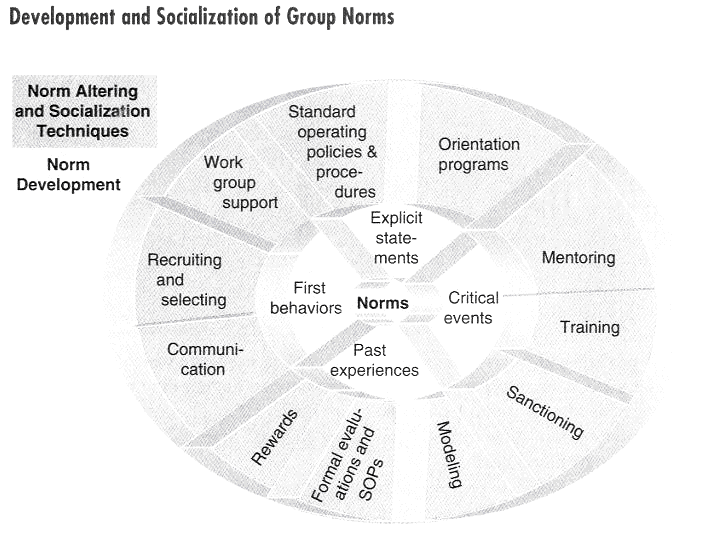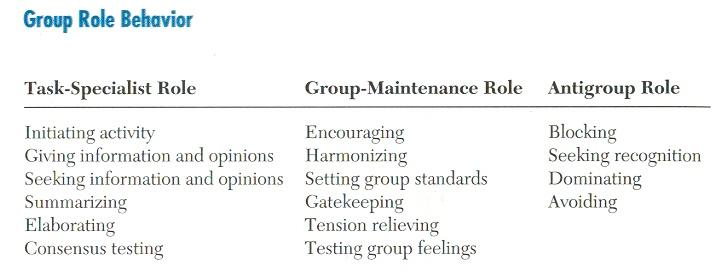
- •Ministry of finance of ukraine
- •Hr managers
- •Contents Preface
- •Unit 1 what is human resource management?
- •Vocabulary 1
- •The nature of human resource management
- •Vocabulary 2
- •What are hrm programs aimed at?
- •A partial list of tasks and ksAs for the position of regional sales manager
- •Vocabulary 1
- •Text 4 Forecasting Demand for Employees
- •Unit 3 human resource planning: forcasting supply of employees
- •Vocabulary 1
- •Text 5 Forecasting supply of employees
- •Vocabulary 2
- •1. Read text 6 and think of the suitable title. Text 6
- •Comprehension check.
- •Steps in writing a summary
- •Here are a few tips for you about writing a summary and some useful expressions
- •Unit 4 Recruiting
- •Text 7 The Purposes of Recruiting
- •Vocabulary 1
- •Unit 5 Selecting employees: part 1
- •Vocabulary 1
- •The application
- •Vocabulary 2
- •Unit 6 Selecting employees: part 2
- •Vocabulary 1
- •The Interview
- •Job interview questions for selection of managers
- •Vocabulary 2
- •He looks quite good on paper.
- •Vocabulary 3
- •Unit 7 Selecting employees: part 3
- •Unit 8 Orientation and training: part 1
- •Vocabulary 1
- •Text 13 Orientation
- •Text 14 training
- •Text 15 Training Needs
- •Unit 9 Orientation and training: part 2
- •Text 16
- •Text 17 Evaluation of Results of Training
- •Vocabulary 1
- •Text 18 Objective Performance Measures
- •Vocabulary 2
- •Trait- and Behaviour-Based Dimensions of Performance Appraisals
- •Text 19 Subjective performance Measures
- •2. Comprehension check.
- •Text 20
- •Unit 11 Compensating employees
- •Vocabulary 1
- •Text 21
- •Text 22 Determining Compensation
- •Vocabulary 2
- •Unit 12 promoting, transferring and terminating employees
- •Vocabulary
- •Text 24 promotions and transfers
- •Text 25 termination
- •Text 26
- •Unit 13
- •Texts for self-study
- •Teamwork Makes eds an Information Powerhouse
- •Text 2 the nature of groups and teams
- •Benefits of Teams
- •A model of work group effectiveness
- •Text 5 Types of Groups
- •Text 6 Size and composition of Groups
- •Text 7 Stages of Group Development
- •Text 8 Group Norms
- •Development and socialization of group Norms
- •Text 10 Group Roles
- •Text 11 problems in groups
- •Text 12 what is motivation?
- •Text 13 The Importance of Motivation
- •Motivation and job design
- •Text 15 Flexible-Scheduling Strategies in Work Design
- •Text 16 Paying for Performance
- •Text 17 the nature of leadership
- •The Sources of Power
- •Trait approach to leadership
- •Table 5
- •Text 20 contingency theories of leadership
- •Text 21 Fiedler's Contingency Theory
- •Path-Goal Theory
- •Vroom-Yetton-Jago Participation Model
- •Current trends in the study and practice of leadership
- •Leader-Member Exchange Theory
- •Charismatic Leadership
- •Transactional versus Transformational Leadership
- •Tapescripts
- •The importance of human resource management
- •Glossary
- •Integrity tests
- •Trait appraisal
- •Кучина Наталя Михайлівна англійська мова для майбутніх управілінців людськими ресурсами
Text 10 Group Roles
While norms relate to rules and expectations shared by all group members, a role is the behaviours expected of a specific person in the group. A work team, for instance, may share a norm related to quality customer service, but individual group members may engage in different behaviours relative to that norm. Some may interact with customers on a daily basis, while others serve the customer behind the scenes. Problems can result if roles are not clear in a group. It is a manager's job to ensure that necessary roles are performed, that people understand their roles, and that resolutions are reached when role behaviours come into conflict.
Figure 4 shows how a person's role behaviours are derived. Role senders, who may include a person's boss, fellow group members, customers, suppliers, and even the formal organization through a job description, send messages about what they expect from the target person. The target person perceives (filters) this sent role and develops the received role, what she thinks others want her to do. She mixes this role with her own personal attributes and self-expectations to determine the role behaviours in which she will engage.
Some role behaviours are apparent. The team leader, for example, sets the agenda, calls the group to order, and directs the discussion by calling on various members. Each member also may perform certain behaviours dictated by her or his job title: welders weld, accountants calculate numbers, and so on. Other less apparent role behaviours evolve in a group and are particularly relevant during meetings and discussions. Two important roles are leadership roles and boundary-spanning roles.

Figure 3

Leadership Roles
Two kinds of roles emerge in groups: task-specialist roles and group-maintenance roles. Although these are often called leadership roles, this is somewhat of a misnomer in a group because these roles are performed by all group members at various times. Task-specialist roles are behaviours oriented toward generating information and resolving problems. These roles are aimed at getting the job done. Group-maintenance roles help the group engage in constructive interpersonal relationships and help members fulfil personal needs and derive satisfaction from group participation. These behaviours include encouraging inputs from all members, harmonizing to deal with conflict, setting standards of group operation, relieving tension through suggesting breaks or using humour, and testing group feelings. Note that these two roles are aimed at the two primary effectiveness outcomes in the general model of groups in Figure 1. Some group members tend to be task specialists while others tend toward maintenance roles. Unfortunately, some tend to perform dysfunctional roles called antigroup behaviours. The characteristics of each of these roles are shown in Table 2.
Antigroup roles include behaviours that disrupt the group, draw attention to individual rather than group functioning, and reduce positive interactions. These include blocking the discussion of others, seeking recognition through side discussions or inappropriate joking, dominating the conversation, or avoiding group interaction entirely. When antigroup role behaviours are present, leaders and others must utilize the task and maintenance behaviours to get the group back on target.
Boundary-Spanning Roles
Boundary-spanning roles involve interacting with members in other units of the organization or even outside the organization. The group leader who acts as a link with upper-level bosses is in a boundary-spanning role. Many members in quality teams go visit and work with client organizations to help learn how to serve the client better. Some group members act as liaisons with other teams or have membership on other teams and, thus, share information across the boundaries among the groups. As the use of teams grows, change accelerates, and demands for customer service and quality become even more pronounced, such boundary-spanning roles will become ever more important. The increase in the use of cross-functional teams is a reflection of these changes.
Which of these statements expresses the main idea of the text?
A role is the behaviours expected of a specific person in the group.
Two important group roles are leadership roles and boundary-spanning roles.
Task-specialist roles and group-maintenance roles are performed by all group members at various times.
Boundary-spanning roles are becoming increasingly important.
Find in the text English equivalents of these words and phrases.
|
|
|
|
|
|
|
|
|
|
|
|
|
|
|
|
|
|
|
|
|
|
|
|
|
|
|
|
|
|
|
|
|
|
|
|
|
генерувати |
|
|
|
|
|
|
|
|
|
|
|
|
визначений |
|
|
|
|
|
|
3. Are these statements true or false? Correct the false ones.
Individual group members must engage in the same behaviours relative to a specific group norm.
A manager must be sure that group members understand their roles and their role behaviours do not conflict.
A formal organization presenting a job description to the target person can be a role sender.
The role behaviours are determined by the received role in combination with person’s qualities and beliefs.
Task-specialist roles and group-maintenance roles are purely leadership roles.
Maintaining constructive interpersonal relationships is ensured by task-specialist roles.
Group-maintenance roles help the group to handle conflicts and reduce tension.
Antigroup roles can lead to blocking group interactions.
Interaction with members in other units of the organization is hampered by boundary-spanning roles.
4. Here are some answers about group roles. Write the questions.
It is the behaviours expected of a specific person in the group.
Problems can result.
It shows how a person's role behaviours are derived.
They may include a person's boss, fellow group members, customers, suppliers, and even the formal organization.
They send messages about what they expect from the target person.
He or she sets the agenda, calls the group to order, and directs the discussion by calling on various members.
These are leadership roles and boundary-spanning roles.
Because these roles are performed by all group members at various times.
They are aimed at getting the job done.
They help the group to engage in constructive interpersonal relationships and help members fulfil personal needs and derive satisfaction from group participation.
In Table 2.
They include behaviours that disrupt the group, draw attention to individual rather than group functioning, and reduce positive interactions.
They must utilize the task and maintenance behaviours to get the group back on target.
He or she acts as a link with upper-level bosses.
To help learn how to serve the client better.
5. Write a summary of the text.
Figure 4



Table 2

